This page is based on this
Wikipedia article Text is available under the
CC BY-SA 4.0 license; additional terms may apply.
Images, videos and audio are available under their respective licenses.
This article presents lists of the literary events and publications in 1710.

Thomas Clifford, 1st Baron Clifford of Chudleigh was an English statesman who sat in the House of Commons from 1660 to 1672 when he was created Baron Clifford.

Chudleigh is a small town located within the Teignbridge District Council area of Devon, England between Newton Abbot and Exeter. The electoral ward with the same name had a population of 6,125 at the 2011 census.
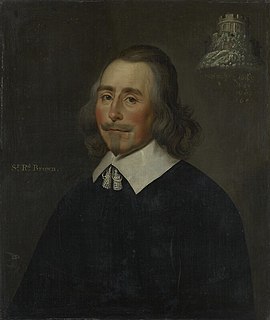
Sir Richard Browne, 1st Baronet was a major-general in the English Parliamentary army during the English Civil War. He was subsequently Lord Mayor of London.
Thomas Hugh Clifford, 14th Baron Clifford of Chudleigh, is a British hereditary peer and former British Army officer.

The Battle of Stratton was a battle of the south-western campaign of the First English Civil War. Fought on 16 May 1643, the resulting victory for Hopton confirmed Royalist control of Cornwall and destroyed Parliament's field army in Devon.
Edward Radclyffe, 6th Earl of Sussex was an English politician who sat in the House of Commons between 1586 and 1611 and later succeeded to a peerage.
Sir Francis Goodwin was an English politician who sat in the House of Commons at various times between 1586 and 1626.
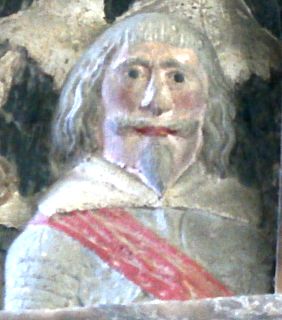
Sir Richard Strode of Newnham, Plympton St Mary, Devon and of Chalmington in Dorset, was a member of the Devonshire gentry who served as MP for Bere Alston in 1604, Bridport in 1626 and for Plympton Erle in 1640. He was by religion a puritan and towards the end of his life a baptist. During the Civil War he was a parliamentarian and raised a force of 3,000 dragoons.
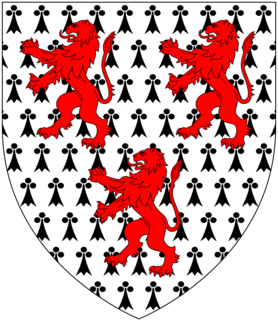
The Chudleigh Baronetcy, of Ashton in the County of Devon, was a title in the Baronetage of England. It was created on 1 August 1622 for George Chudleigh (d.1656), Member of Parliament for St Michael's, East Looe, Lostwithiel and Tiverton. The title became extinct on the death of the sixth Baronet in 1745.

Sir George Chudleigh, 1st Baronet, of Ashton, Devon, was an English landowner and politician who sat in the House of Commons at various times between 1601 and 1625. He supported the Royalist cause in the English Civil War after opposing the king initially.
Sir Christopher Hilliard or Hildyard was an English landowner and politician who sat in the House of Commons at various times between 1589 and 1629.
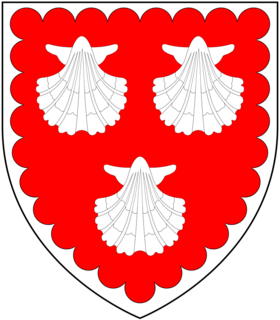
Christopher Erle was an English lawyer and politician who sat in the House of Commons at various times between 1621 and 1629.

Sir Reginald Mohun, 1st Baronet (1564–1639) of Boconnoc in Cornwall, was a prominent member of the gentry of Cornwall and an MP.

Whiteway House in the parish of Chudleigh in Devon is a Grade II* listed Georgian house set in parkland. It was built in the 1770s by John Parker, 1st Baron Boringdon (1735–1788) of Saltram House, Plympton, and has early 19th-century alterations. It is situated 2½ miles north of Chudleigh, at the foot of the Haldon Hills. The house had formerly a 5-bay north-east wing, a service range and a separate 19th-century service block to the rear, all demolished since 1962.
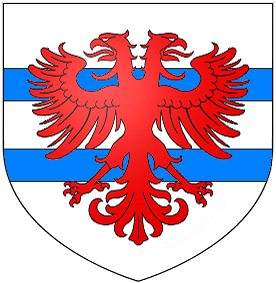
Sir George Speke (c.1530-1584) of Whitelackington in Somerset was Sheriff of Somerset in 1562–63 and was Member of Parliament for Somerset 1572-83.

Reginald Mohun of Trewynard in Cornwall, was a Member of Parliament for Lostwithiel, Cornwall, in 1626.
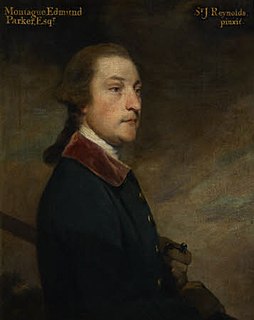
Montagu Edmund Parker (1737–1813) of Whiteway House, near Chudleigh and of Blagdon in the parish of Paignton, both in Devon, was Sheriff of Devon in 1789. Portraits of him by Sir Joshua Reynolds and John Downman survive at Saltram House.









